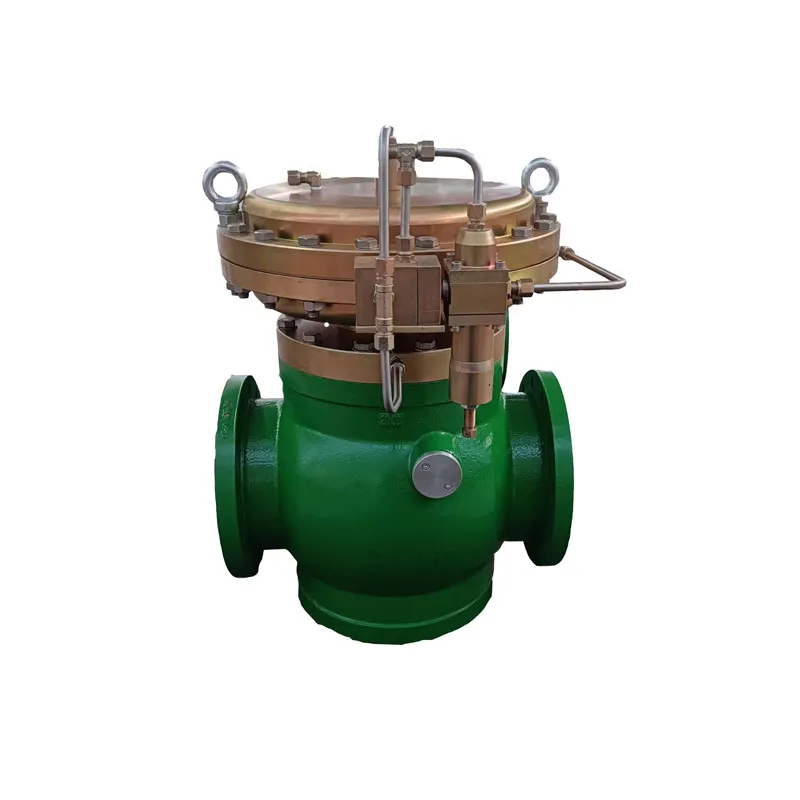
Dec . 21, 2024 16:24
Back to list
Innovative Design and Safety Analysis of Pressure Vessels for Industrial Applications
Understanding Pressure Vessels Design, Applications, and Safety
Pressure vessels are crucial components in various industries, ranging from oil and gas to food processing and pharmaceuticals. These containers are designed to hold gases or liquids at a pressure significantly different from the ambient pressure, making their design and construction critical for safety and efficiency.
What is a Pressure Vessel?
A pressure vessel is defined as a container designed to hold gases or liquids at a pressure substantially different from the ambient pressure. They are built to withstand internal or external pressure, which can vary widely depending on the specific application. Common materials used in the construction of pressure vessels include carbon steel, stainless steel, and other alloys, chosen for their strength and resistance to corrosion.
Design Considerations
The design of a pressure vessel involves a comprehensive understanding of both the physical and chemical properties of the substances contained within it. Engineers must consider factors such as temperature, pressure, and the nature of the fluid. The sizes, shapes, and materials of pressure vessels can vary considerably. They can range from small gas cylinders used in laboratories to large reactors in chemical factories.
To ensure safety and durability, pressure vessels are typically designed according to codes and standards, which vary by country and industry. The American Society of Mechanical Engineers (ASME) Boiler and Pressure Vessel Code is one of the most recognized standards, outlining the requirements for materials, design, fabrication, inspection, and testing.
Applications of Pressure Vessels
pressure vessel

Pressure vessels serve various functions across multiple industries. In the oil and gas sector, they are used for transporting and storing crude oil, natural gas, and their derivatives. In the chemical industry, they play a crucial role in the formulation and storage of chemicals under high pressure. The food and beverage industry utilizes pressure vessels for processes like pasteurization and carbonation of beverages.
In the power generation sector, pressure vessels are integral to reactors in nuclear power plants. They also find applications in the aerospace industry, where they are used in oxygen tanks and fuel systems. Their versatility makes them indispensable in modern industrial processes.
Safety Concerns and Regulations
Given the potential hazards associated with pressure vessels, safety is a paramount concern. Failure of a pressure vessel can lead to catastrophic incidents, including explosions or leaks of hazardous materials. Therefore, rigorous testing and quality assurance protocols are essential throughout the lifecycle of a pressure vessel, from design and manufacturing to operation and decommissioning.
Regular inspections, maintenance, and pressure testing are mandated to ensure that these vessels can safely withstand the pressures they are subjected to. Various organizations and regulatory bodies enforce guidelines to maintain safety standards in the operations of pressure vessels.
Conclusion
Pressure vessels are vital elements in many industries, and their importance cannot be overstated. With their ability to contain fluids and gases under high pressure, they facilitate numerous industrial processes. However, they also come with inherent risks, emphasizing the need for stringent design, manufacturing, and operational standards.
As technology advances, innovations in materials and design are emerging, which could lead to even safer and more efficient pressure vessels. The continued research and adherence to safety protocols will help mitigate risks associated with pressure vessels, allowing industries to harness their capabilities while ensuring the safety of personnel and the environment.
Next:
Latest news
-
Safety Valve Spring-Loaded Design Overpressure ProtectionNewsJul.25,2025
-
Precision Voltage Regulator AC5 Accuracy Grade PerformanceNewsJul.25,2025
-
Natural Gas Pressure Regulating Skid Industrial Pipeline ApplicationsNewsJul.25,2025
-
Natural Gas Filter Stainless Steel Mesh Element DesignNewsJul.25,2025
-
Gas Pressure Regulator Valve Direct-Acting Spring-Loaded DesignNewsJul.25,2025
-
Decompression Equipment Multi-Stage Heat Exchange System DesignNewsJul.25,2025

